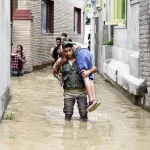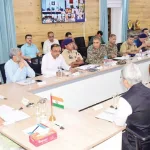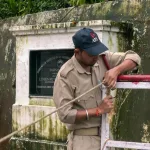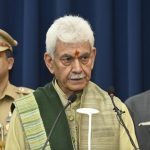This year, a dizzyingly diverse array of countries—from the most populous (India/Bharat) to one of the least (Palau)—will hold national elections. Some will be fully in the global limelight, such as those in Russia, the United Kingdom, Bharat and the United States. Many others will attract relatively little international attention, even though they will be of great importance to their citizens and neighbours. In some, the outcomes are already predictable; for others, uncertainty prevails.
This notable run of elections will take place in a global context defined by an ongoing democratic decline and ever-intensifying geopolitical tensions among major powers. Many of the elections will have significant consequences for one or the other—or both—of these defining trends.However, 2024’s elections do not revolve around a single overarching issue or vector, such as the rise of right-wing illiberalism or the spread of toxic political polarization. Instead, they fall along a more differentiated spectrum.
Some elections, whether presidential or legislative or both together, will take place in countries where autocracy has already taken root. These include Belarus, Iran, Rwanda, Russia, and Venezuela—all of which are rated as not free in Freedom House’s Freedom in the World 2023 report. Rubber-stamping will likely occur in most, but not necessarily all, of these cases. In Venezuela, for example, the opposition maintains at least some capacity, despite the strenuous efforts by the regime to limit its space and reach. And even where incumbents fully dominate the process, how they position themselves in their campaigns and how well they succeed in mobilizing turnout can be informative about their political strengths and weaknesses.
Other elections will be in countries that have been experiencing significant democratic backsliding but are not yet fully autocratic, such as El Salvador, Georgia, Mozambique, and Pakistan. At issue will be whether the elections’ outcomes reinforce and deepen their undemocratic slide or breathe new political oxygen into constricted systems.
Uncertainty will be much more widespread in the sizable set of elections taking place where democracy has been facing serious tremors from surging illiberal political currents, punishing economic crises, debilitating governance shortcomings, or other woes. These include the elections in Ghana, Indonesia, Mexico, Senegal, South Africa, Sri Lanka, the United Kingdom, and the United States, and for the European Parliament. In these cases, whether the elections will end up fuelling greater democratic shakiness or putting the countries on a firmer democratic footing is an overriding question.
Another sizable set of elections will take place in political contexts of relative democratic normality. These include the elections to be held in Austria, Belgium, Croatia, Finland, Palau, Panama, Portugal, Romania, and Uruguay. These contests will present voters with important choices between contending sides, but not ones where democracy itself seems to be fundamentally at risk. However, potential gains by far-right parties in some of these countries—including Austria, Belgium, and Portugal—worry some observers.
World would be watching with keen interest the elections in India; the Bharat,known to be largest democracy in the world,that goes for seven phase elections announced bythe Election Commission of India (ECI) and the schedule for the upcoming Lok Sabha and state Assembly elections.
The important take always are as follows:
When are the Lok Sabha elections scheduled to take place?
Given the magnitude of India’s elections, voting occurs in multiple phases, over a period of time. The EC announced a detailed schedule of elections, along with a map showing when each constituency will go to polls. Elections will take place in seven phases from April 19 to June 1, with counting set to take place on June 4.
How many people are eligible to vote during these elections?
The total electorate in the country, as per EC’s electoral rolls, is just shy of 1 billion (100 crore) people — roughly 12.5 per cent of the global population — with roughly 96.8 cr individuals registered at the moment. This number will change in the coming days as more people register themselves to vote. Almost 97 crore people were eligible to vote in the 2019 elections, while the total registered electorate in 2014 comprised 81.45 crore people. Of this number, roughly 49.7 crore are men, while 47.1 crore are women. There are around 1.8 crore
What is the process for registering to vote?
If any person eligible to vote (an 18+ year old Indian citizen) is left out of the electoral rolls, or has had their name deleted for some reason, she or he can apply to have her or his name included at the earliest. The EC’s website provides details of how to apply for inclusion in electoral rolls, and how to check if your name is included or not. Please note that the law does not allow inclusion into the rolls after 3 pm on the last date of filing nominations. Check out EC’s website (https://voters.eci.gov.in/) for more information.
What are the identification documents required to cast one’s vote?
According to EC data from 2019, over 99 per cent of eligible voters have been given their Elector Photo Identity Card (EPIC), the primary identity document provided by EC. However, in case this is not available a number of other official photo identity documents may be use including one’s passport, driving licence, PAN card, MGNREGA job card, and AADHAR card.
Where can you cast your vote?
To cater to a billion voters, EC will set up thousands of polling stations across the country. EC tries to ensure that polling stations are set up in such a manner that no voter has to travel more than 2 km to cast their vote. The upcoming Lok Sabha elections will be hosted in roughly 10.5 lakh polling stations, with the help of 1.5 crore polling officials and security staff. Refer to the EC website (https://electoralsearch.eci.gov.in/pollingstation) to know your polling booth.
How many EVMs will be needed for the elections?
The EC will require roughly 55 lakh Electronic Voting Machines (EVMs) and Voter Verifiable Paper Audit Trail (VVPAT) machines for conducting the upcoming election. In 2019, the EC had requisitioned 23.3 lakh ballot units (where votes are cast), 16.35 control units (where tallies are stored), and 17.4 lakh VVPAT machines. The EC has also provided information on how EVMs work, and how to use them. To know more, refer to the EC website. ( https://www.eci.gov.in/evm-vvpat )
And what changes with today’s announcement?
Perhaps most importantly, with EC’s announcement, the Model Code of Conduct (MCC) has come into immediate effect. The MCC is a set of guidelines issued to regulate political parties and candidates prior to elections. It governs things such as speeches, campaigning, content of election manifestos, behaviour in polling booths, etc. to ensure that free and fair elections are conducted.
Voting holds a crucial role in a democratic society and without genuine elections, democracy has no meaning. Elections provide the citizens with a uniformly managed way to voice their opinions and choose who and what is best for them and their nation. It is not that elections are a new concept in Independent India. Elections used to be held even before independence; it is just that the choices and voices were very limited at that time and the franchise may not be very fair. After independence, India chose to have a universal adult franchise and give all adults the right to have an equal vote. The first such elections were held in 1951-52.
The importance of elections in any democracy stems on the following basis:
- Choice of leadership: By participating in elections, every citizen can choose their leader by casting a vote in favour of the politician or the political party for that matter.
- Change of leadership: As the citizens are the ultimate authority in any democracy, they can voice their opinion if they do not like the testaments of the existing government. They can change the government by choosing their following votes very carefully and giving a thought to the political party before giving them their vote.
- Political participation: As a responsible citizen of the country, if one feels there is an issue not being addressed by most or all of the political parties or some modifications needs to be made in their solution, they can always participate in that discussion either by raising their opinions to the governing bodies or by forming political parties themselves to bring about a reform.
- Self-corrective system: Due to the regularity present in the Indian election system, it acts as a kind of check on the work of the political parties, restating the fact that if the party is not efficient enough in their work, they will not form the government subsequently. Therefore political parties have a regular performance of working well to get votes from the public.
Elections form the basis of democracy and holding timely elections regularly is what makes the process genuinely in accordance with constitutionalism.In a democracy, elections are important to check and balance the political parties as to their performance and make them answerable to the voters and the nation.
Elections enable voters to select leaders and to hold them accountable for their performance in office. The electoral process is competitive and forces candidates or parties to expose their records and future intentions to popular scrutiny. Elections serve as forums for the discussion of public issues and facilitate the expression of public opinion. Elections thus provide political education for citizens and ensure the responsiveness of democratic governments to the will of the people. They also serve to legitimize the acts of those who wield power, a function that is performed to some extent even by elections that are non-competitive.
Elections also reinforce the stability and legitimacy of the political community. Like national holidays commemorating common experiences, elections link citizens to each other and thereby confirm the viability of the polity. As a result, elections help to facilitate social and political integration.
A thriving and vibrant electoral democracy has been India’s distinct and durable identity, long before it asserted itself as powerful economic, nuclear or technological major. Founded by a great Constitution, it has been nurtured by parliament, judiciary, political parties, media,ECI and above all by the people of India.
“Let DEMOCRACY Triumph to replace turbulence”
( The Author is Senior Advocate, Supreme Court of India and a distinguished fellow, United services of India(USI);Chairman; Kashmir(Policy and Strategy) Group)





